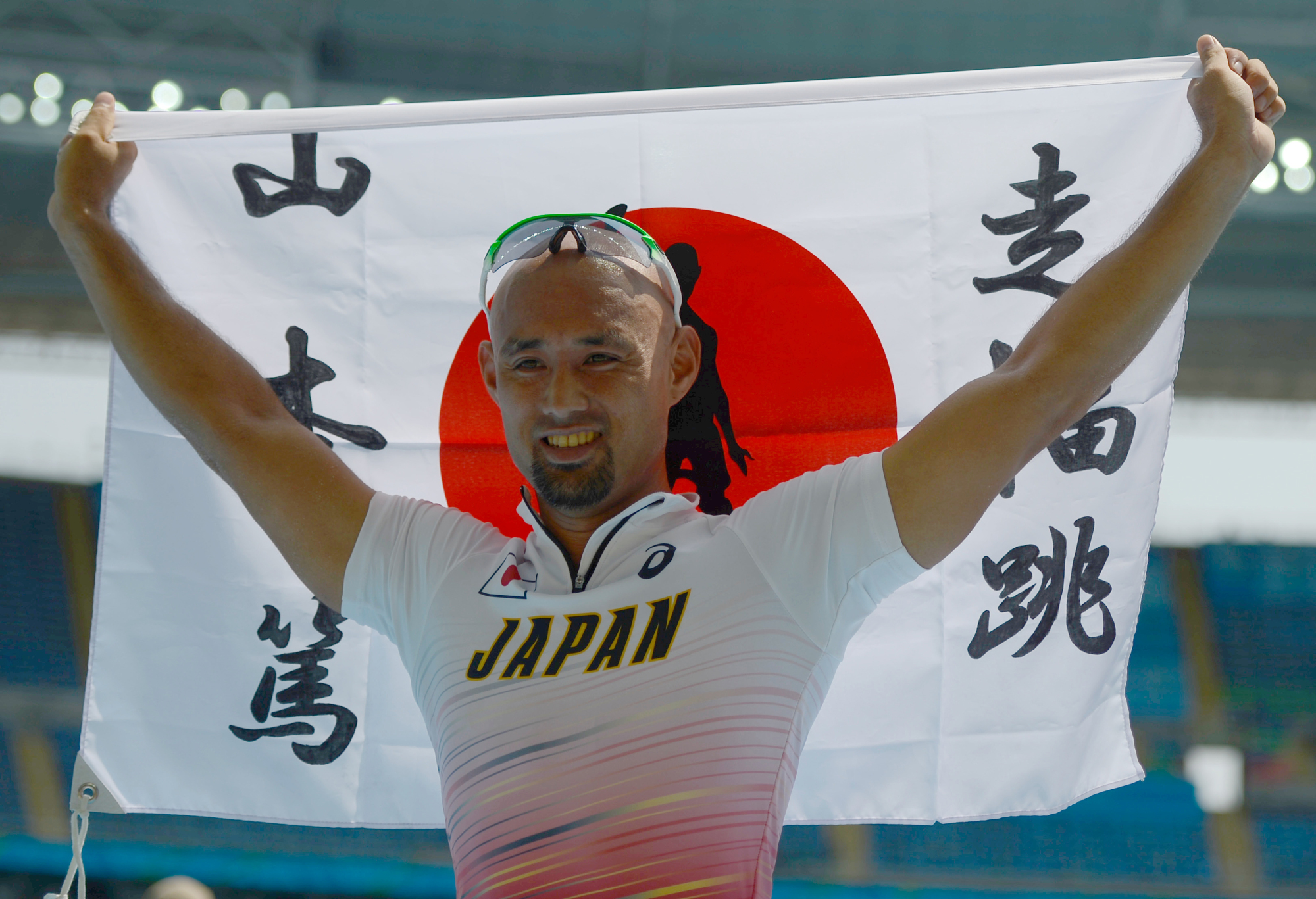He is arguably Japan's best-known disabled athlete, but some may be surprised to see Atsushi Yamamoto at the Pyeongchang Winter Paralympics.
Famous for Summer Paralympics track and field events, Yamamoto claimed silver in the long jump at the 2008 and 2016 Games and a bronze in the 4x100-meter relay at the latter. Now trading in his bladed leg prosthesis for a snowboard, Yamamoto is looking to prove he is a true double threat, while returning to his roots.
Paralympic events begin on Saturday.
Although the 35-year-old is new to competitive snowboarding, he has enjoyed the sport since he was a child growing up in Kakegawa, Shizuoka Prefecture. And having his left leg amputated above the knee after a motorcycle accident as a high schooler did not stop him from hitting the slopes.
"My family used to go on snowboarding vacations, so (after the accident) I leapt at the chance to get back on a board," he said before leaving for South Korea.
"It was snowboarding that motivated me not only to begin walking again, but also to run and put on more muscle. You could say my desire to snowboard was the first step that allowed me to come this far."
Snowboarding was added to the 2014 Sochi Paralympic program, but only as an event within Alpine skiing, unlike in Pyeongchang where it is a standalone sport.
Yamamoto said he told the Japan Paralympic Committee back then that he wanted to compete, but a lack of support from sporting organizations forced him to give up on 2014.
He was a last-minute addition for Pyeongchang because a dislocated right elbow kept him from joining qualifying events, leaving him to wait for a wild card invitation from the International Paralympic Committee.
Yamamoto competed in his first international snowboarding event last year, and unlike his teammates Gurimu Narita and Daichi Oguri, he is a long shot to medal in either of his two events, banked slalom and snowboard cross. He acknowledges this, saying that finishing within the top eight would be a good result.
But he hopes the experience and publicity he gets will help generate enthusiasm for the 2020 Tokyo Paralympics.
"I get a lot of media coverage because I'm at both the Summer and Winter Paralympics, so hopefully that gets me recognized more and gives people a reason to come watch the Tokyo Games."
Yamamoto also has new motivation: his wife Sachiko gave birth to their first child, Shunta, less than a week before the beginning of the games.
He says his biggest goal is to win a gold medal in Tokyo and hold his son in the stadium.
"If I can do that, it would just be the best," he said.




